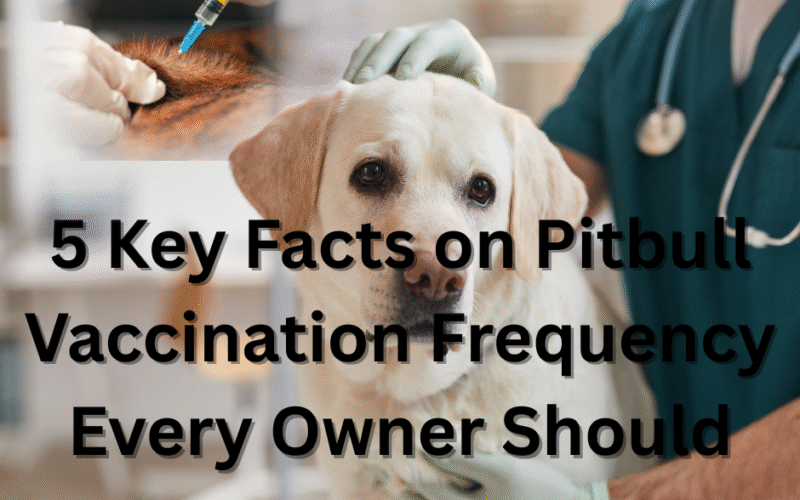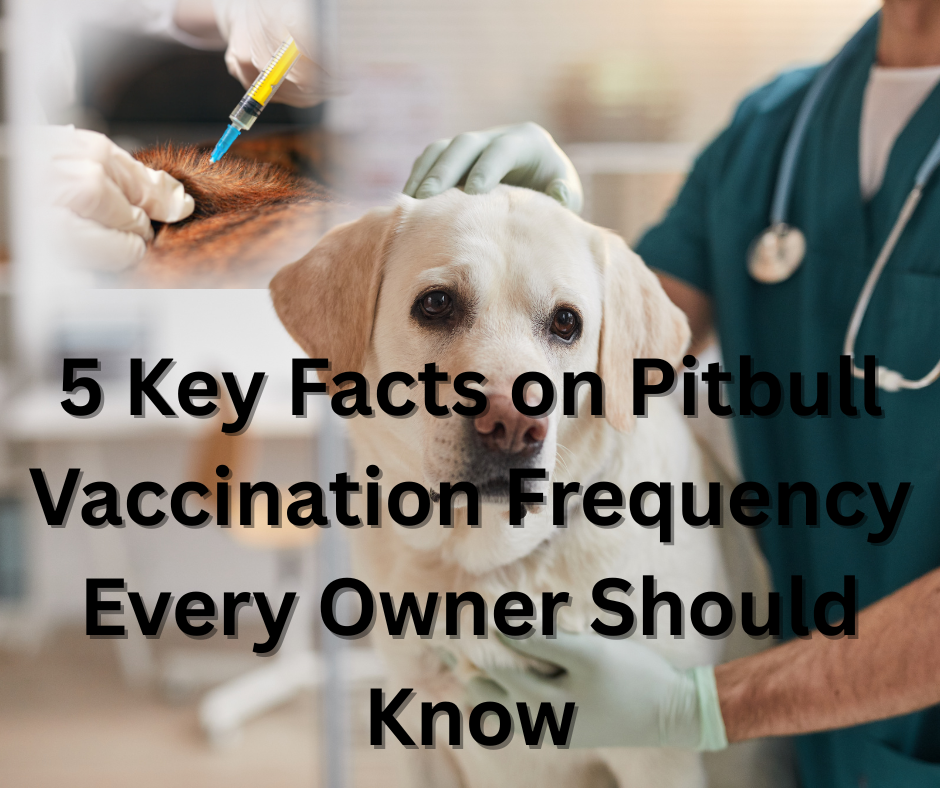
If you’ve ever found yourself wondering, “Am I vaccinating my Pitbull too often or not enough?” You’re not alone. Many owners, both first-time puppy parents and long-time Pitbull lovers, feel uncertain about how frequently their dogs need shots. And with so much conflicting information online, it’s easy to feel overwhelmed.
The truth is, vaccination schedules aren’t one-size-fits-all. Puppies, adults, and senior Pitbulls each have different needs, and factors like lifestyle, travel, and even local laws can influence how often your dog should be vaccinated. At the same time, myths about “over-vaccination” can cause confusion and hesitation, putting dogs at unnecessary risk.
That’s why we’ve broken it down into 5 key facts on Pitbull vaccination frequency—straightforward, science-backed insights that every owner should know. Whether you’re raising your first Pitbull puppy or fine-tuning care for your loyal companion, these essentials will give you clarity and confidence to keep your dog healthy and protected for life.
Fact 1: Pitbull Puppies Have Different Vaccination Needs Than Adults
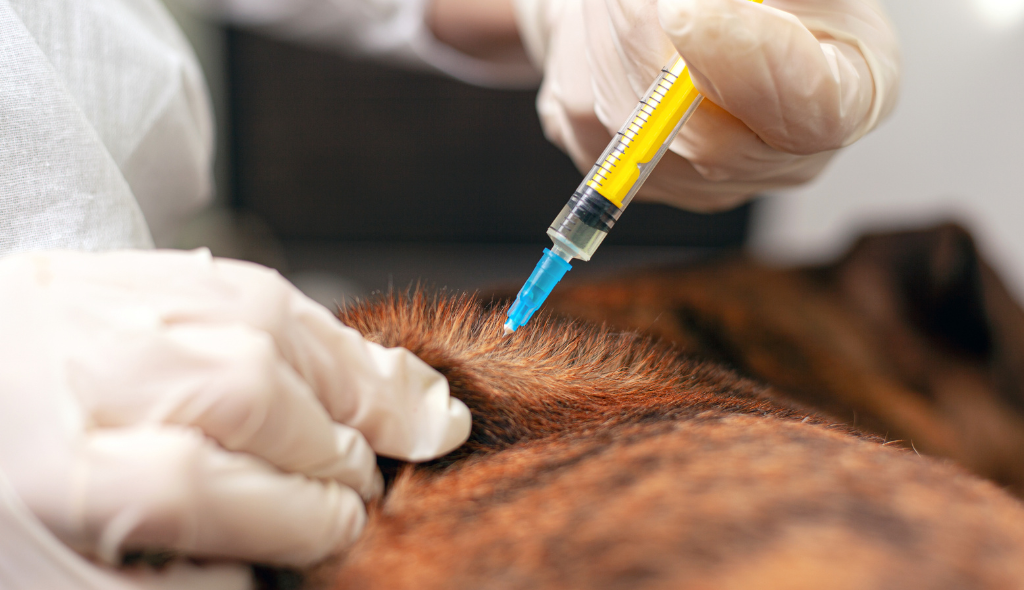
When it comes to facts on Pitbull vaccination frequency, one of the most important distinctions to understand is the difference between a puppy’s immune system and that of an adult Pitbull. Puppies are especially vulnerable to diseases such as parvovirus, distemper, and adenovirus because their natural immunity is still developing. This is why their vaccination schedule is more frequent and carefully structured compared to that of adult dogs.
The Puppy Vaccination Timeline
Veterinarians generally recommend the following schedule for Pitbull puppies:
- 6–8 weeks old: First round of core vaccines, which often include distemper, parvovirus, and adenovirus.
- 10–12 weeks old: Second round of boosters to reinforce immunity.
- 14–16 weeks old: Final set of puppy shots to complete the protection cycle.
This staggered approach ensures that a puppy’s immune system, which is still maturing, can build strong, long-lasting protection. Skipping doses or delaying the schedule can leave your Pitbull vulnerable during these critical early months.
Why Puppies Need Frequent Vaccinations
Unlike adult Pitbulls, puppies do not yet have a fully developed immune response. They receive some temporary protection from their mother’s milk (maternal antibodies), but this wanes quickly within the first few weeks of life. Vaccines step in to fill this gap, training the puppy’s immune system to recognize and fight off dangerous viruses.
Because maternal antibodies can interfere with how vaccines work, multiple rounds are necessary. Each booster “reminds” the immune system and strengthens the response until full protection is achieved.
Myth-Buster: One Shot Is Not Enough
A common misconception among new dog owners is that a single shot will keep their Pitbull puppy safe. In reality, one vaccination is not enough. Without the full series of puppy shots, your Pitbull could remain susceptible to life-threatening illnesses. For example, parvovirus can be fatal in young dogs that are not properly vaccinated. Following the complete timeline is critical, no matter how healthy your puppy appears.
Puppy vs. Adult Vaccination Schedule
To put things in perspective, here’s a simple comparison:
| Age Group | Frequency of Vaccines | Example Vaccines |
| Puppy (6–16 weeks) | Every 3–4 weeks until 16 weeks | Distemper, Parvovirus, Adenovirus, Parainfluenza |
| Adult (1+ year) | Boosters every 1–3 years (depending on vaccine and vet advice) | Core vaccines + lifestyle vaccines as needed |
Understanding this difference is the first step toward ensuring your Pitbull gets the right protection at the right time.
Learn more about Pitbull vaccination frequency and how to keep your Pitbull safe, click here.
Fact 2: Adult Pitbulls Need Boosters, but Not as Often as You Think
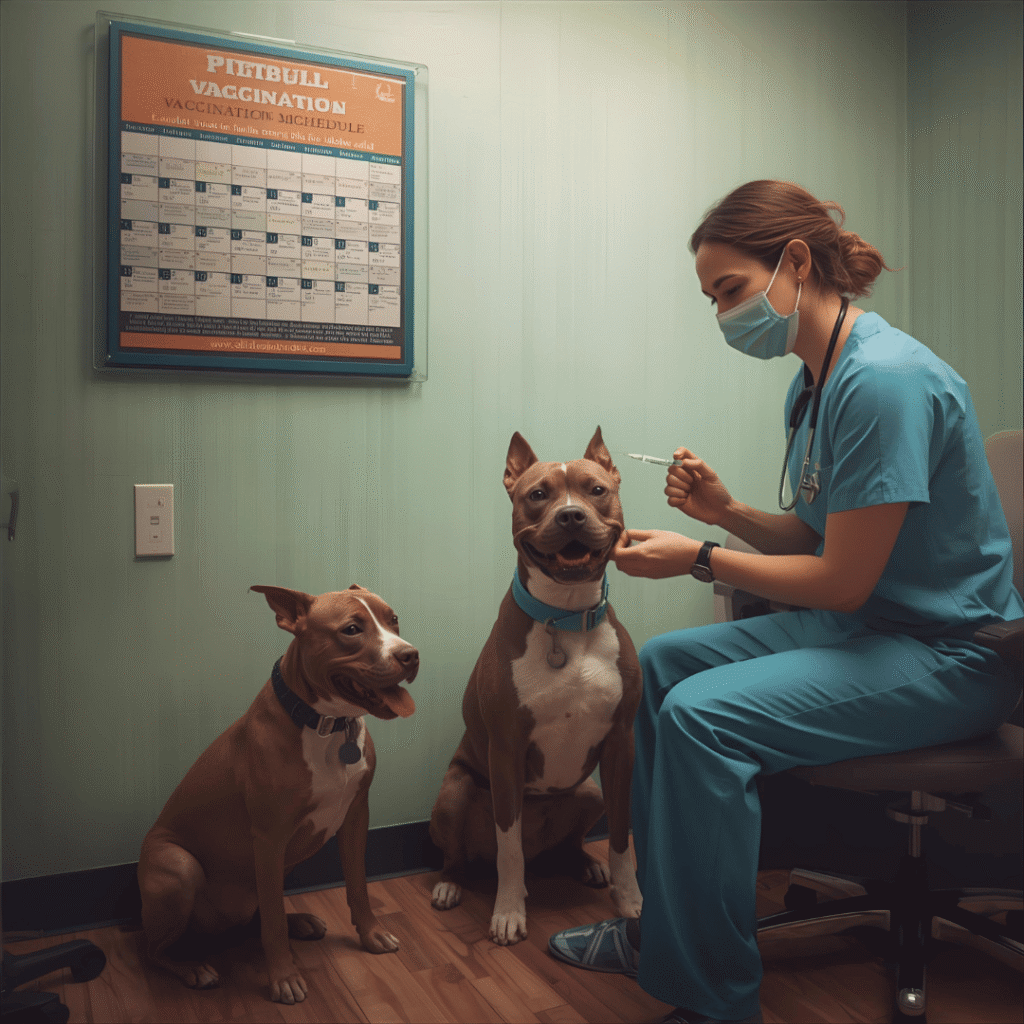
When discussing facts about Pitbull vaccination frequency, it’s essential to recognize that once your Pitbull reaches adulthood, the vaccination schedule undergoes significant changes. Unlike puppies that require shots every few weeks, adult Pitbulls typically only need booster vaccines every one to three years, depending on the type of vaccine and your veterinarian’s guidance.
Core vs. Lifestyle (Non-Core) Vaccines
Adult Pitbulls benefit from two categories of vaccines:
- Core Vaccines: These are essential for all Pitbulls regardless of environment or lifestyle. They usually include:
- Distemper
- Parvovirus
- Adenovirus (hepatitis)
- Rabies (legally required in most places)
- Distemper
- Lifestyle or non-core vaccines are recommended based on your Pitbull’s activities, exposure, and location. These may include:
Understanding the distinction between these two categories helps Pitbull owners avoid unnecessary vaccinations while still protecting against the most serious diseases.
Over-Vaccination vs. Under-Vaccination
Some owners worry about “over-vaccination,” especially with yearly boosters. Veterinary guidelines now recognize that many core vaccines provide immunity for several years, which is why most adult Pitbulls don’t require annual re-vaccination for every disease. Instead, the common recommendation is every three years for many core vaccines.
That said, skipping boosters altogether is dangerous. Without timely boosters, your Pitbull’s immunity can fade, leaving them at risk of contracting preventable diseases. Finding the balance — not too frequent, not too infrequent — is the key to lifelong protection.
Practical Tip: Titer Testing
For Pitbull owners who want to avoid unnecessary vaccinations but still keep their dogs safe, titer testing is an excellent option. This blood test measures the level of antibodies in your dog’s system to determine whether immunity is still strong. If your Pitbull shows adequate protection, your veterinarian may advise delaying the next booster.
Titer testing not only reassures concerned owners but also provides a science-backed way to personalize vaccination frequency. It’s a proactive step that ensures your Pitbull stays protected without receiving more shots than necessary.
Fact 3: Rabies Laws Impact How Often You Vaccinate
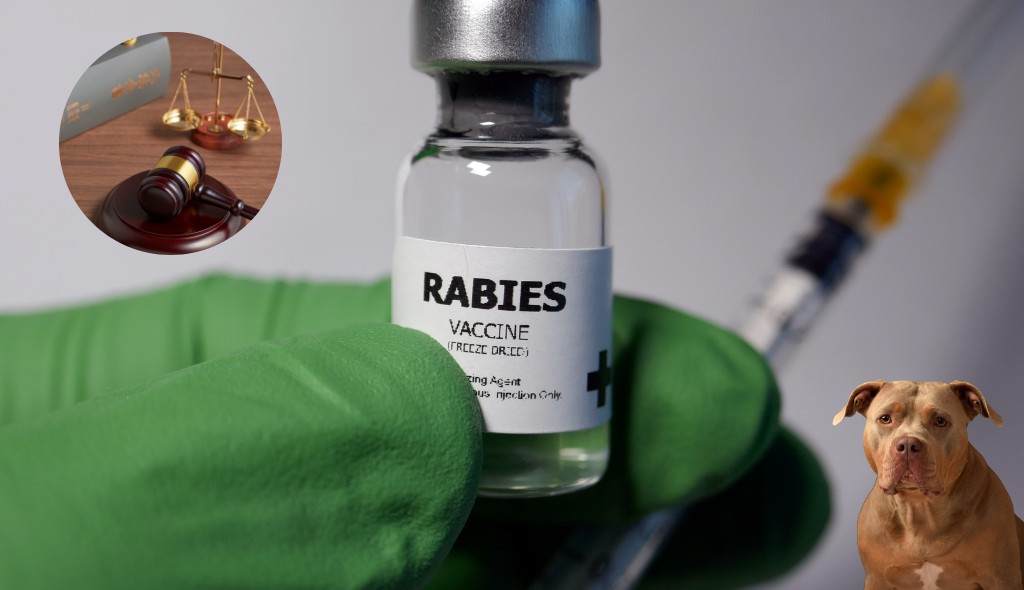
Among the most important facts on Pitbull vaccination frequency is that rabies vaccination isn’t just a health decision; it’s a legal requirement in most areas. Rabies is a fatal viral disease that poses a threat not only to dogs but also to humans, which is why governments enforce strict vaccination laws to control its spread.
Rabies Vaccination Schedules: 1-Year vs. 3-Year
Depending on where you live and the type of rabies vaccine used, your Pitbull may need to be vaccinated on a 1-year or 3-year schedule:
- 1-Year Rabies Vaccine: Often given to puppies during their first rabies vaccination at 12–16 weeks old. Some states or countries mandate annual rabies shots regardless of vaccine type.
- 3-Year Rabies Vaccine: Widely accepted across many regions, provided the vaccine is licensed for three years and your Pitbull receives timely boosters.
Veterinarians follow both medical guidelines and local regulations when recommending which schedule applies to your dog. This means that even if your vet prefers a three-year vaccine, the law may still require annual rabies boosters depending on where you live.
Local Laws Vary
Every state, province, or country may have its own rules regarding rabies vaccination. For example, one state may mandate annual rabies shots for all dogs, while another may allow the three-year vaccine schedule. For Pitbull owners who travel or relocate, this can sometimes be confusing.
The best approach is to:
- Check with your veterinarian about local laws.
- Verify county or city ordinances, since requirements can differ even within the same state.
- Keep vaccination records handy, especially if you board your Pitbull, travel with them, or enter them into training programs.
Myth-Buster: Rabies Shots Don’t “Overload” Your Pitbull
Some owners worry that rabies vaccines may be too strong or harmful when given repeatedly. The reality is that rabies vaccines are carefully tested for safety and are critical for both legal compliance and your Pitbull’s health. Failing to vaccinate not only risks exposure to a deadly disease but can also result in fines, quarantine, or even legal consequences if your dog bites someone.
Rabies vaccines don’t “overload” your Pitbull’s system; they protect your dog, your family, and your community. Staying compliant with the schedule is both a health responsibility and a legal obligation for every Pitbull owner.
Fact 4: Lifestyle and Health Status Change the Frequency
One of the most overlooked facts about Pitbull vaccination frequency is that your dog’s lifestyle and overall health can change how often they need certain vaccines. While core vaccines follow fairly standard schedules, non-core or lifestyle vaccines are more flexible and tailored to each Pitbull’s daily activities and health status.
Active Pitbulls May Need Extra Protection
Pitbulls are known for their energy, and many owners take them to dog parks, training classes, boarding kennels, or even on cross-country travel. In these environments, your dog is exposed to other dogs, making additional vaccines highly recommended. These include:
- Bordetella (Kennel Cough): Often required for boarding or daycare facilities; typically given annually, though some kennels require a booster every 6 months.
- Canine Influenza: Recommended for Pitbulls in urban areas or those exposed to group settings; usually administered yearly.
- Leptospirosis: Strongly advised for dogs that hike, swim, or live in rural or wet environments; given annually.
By tailoring these non-core vaccines to your Pitbull’s activities, you reduce the risk of contagious illnesses that spread quickly in social settings.
Older Pitbulls and Dogs With Health Issues
Another key factor in vaccination frequency is your Pitbull’s health status. Senior dogs and those with chronic illnesses may not follow the same schedule as healthy, active adults. In these cases, veterinarians may:
- Spread out vaccines to reduce stress on the immune system.
- Prioritize only the most critical vaccines (such as rabies and parvovirus).
- Use titer testing to determine if boosters are necessary.
This personalized approach ensures older or sensitive Pitbulls remain protected without unnecessary strain.
Lifestyle-Related Vaccine Frequency at a Glance
Here’s a quick reference guide for common non-core vaccines:
- Bordetella: Every 6–12 months
- Canine Influenza: Annually
- Leptospirosis: Annually (more frequent in high-risk areas)
- Lyme Disease: Annually in tick-heavy regions
Tailor the Plan; Don’t Generalize
No two Pitbulls live the same life, which means no single vaccination schedule fits all. A homebody Pitbull who rarely leaves the backyard may not need the same vaccines as a pup who goes hiking every weekend. The most responsible approach is to work with your veterinarian to develop a plan that reflects your Pitbull’s lifestyle, health, and environment.
By tailoring vaccinations instead of relying on a blanket schedule, you’re giving your Pitbull the best balance of safety and care.
Fact 5: Vaccination Side Effects Are Rare and Don’t Outweigh the Benefits
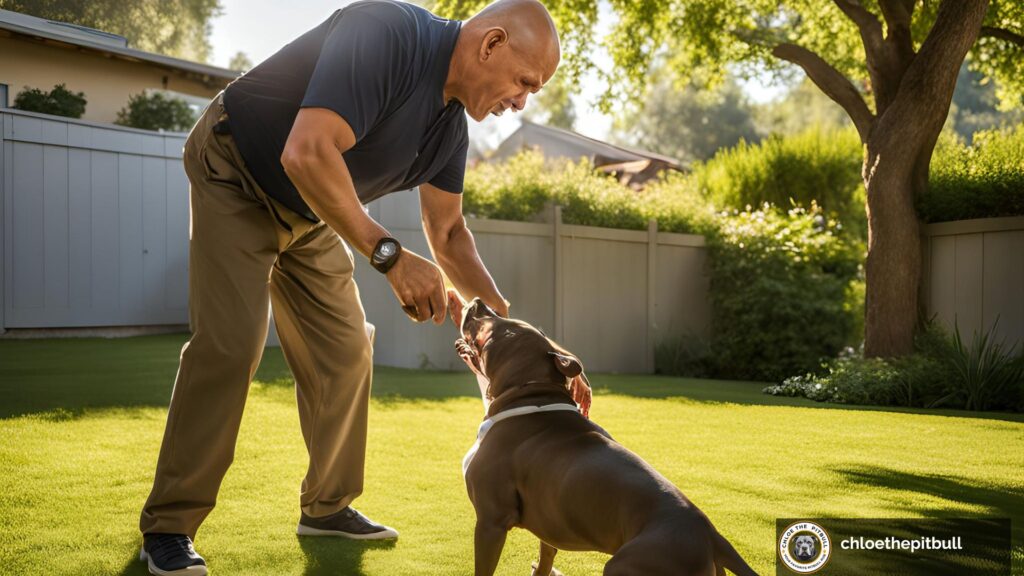
When exploring facts on Pitbull vaccination frequency, it’s natural for owners to worry about side effects. After all, no one wants to see their beloved Pitbull uncomfortable after a vet visit. The good news is that side effects are usually mild, short-lived, and far less risky than leaving your dog unprotected against dangerous diseases.
Common Mild Reactions
Most Pitbulls bounce back quickly after vaccines, but some may experience mild, temporary symptoms such as
- Slight soreness or tenderness at the injection site
- Low energy or seeming a bit “off” for 24 hours
- Mild fever or reduced appetite
These signs are normal and typically resolve within a day or two. They simply indicate that your Pitbull’s immune system is responding to the vaccine as expected.
Rare but Serious Reactions
In very rare cases, dogs can have stronger reactions. These may include:
- Facial swelling
- Hives or itching
- Persistent vomiting or diarrhea
- Difficulty breathing or collapse (signs of anaphylaxis)
While extremely uncommon, these reactions require immediate veterinary care. Fortunately, most veterinarians monitor dogs after vaccination and advise owners on what to watch for at home.
Myth-Buster: Vaccines Don’t Cause Chronic Illness
A persistent myth in some dog-owner circles is that vaccines lead to long-term health problems. Scientific studies consistently show the opposite: unvaccinated dogs face far higher risks of contracting life-threatening diseases like parvovirus, distemper, and rabies. Vaccines are rigorously tested for safety, and adverse long-term effects are exceedingly rare.
In fact, skipping vaccines exposes Pitbulls to greater suffering and expense — not to mention the risk of spreading preventable diseases to other pets and even humans.
Knowledge Reduces Fear
The key takeaway for Pitbull lovers is that regular vaccinations save lives. Understanding the difference between mild, temporary reactions and rare emergencies can ease anxiety and encourage owners to stay on schedule. When in doubt, ask your veterinarian about side effect risks, pre-vaccine screenings, or alternative schedules for older or sensitive Pitbulls.
By focusing on facts rather than myths, owners can feel confident that they are making the safest choice for their dog’s long-term health. Vaccination remains one of the simplest and most powerful ways to protect Pitbulls, and the peace of mind it brings is priceless.
Bonus Tip: Keep a Vaccination Record for Your Pitbull
Another practical takeaway when looking at the facts on Pitbull vaccination frequency is the importance of keeping a detailed vaccination record. Whether you’re a first-time Pitbull owner or have raised several over the years, maintaining accurate records makes a big difference in your dog’s care.
Why Tracking Vaccinations Matters
By noting the dates, vaccine types, and vet visits, you’ll:
- Ensure your Pitbull never misses a booster.
- Make vet visits smoother; your veterinarian won’t need to guess or repeat shots unnecessarily.
- Stay compliant with local rabies and licensing laws.
- Have proof of vaccination for boarding, daycare, training classes, or travel.
Keeping a record also gives you peace of mind, especially if your Pitbull needs urgent care or you change veterinarians.
Easy Ways to Keep Records
You don’t need anything fancy to track vaccinations. Many owners simply:
- Use a notebook or folder to store vaccination certificates.
- Download a pet health app that sends reminders when shots are due.
- Ask their vet for a vaccination card that can be updated after each visit.
Regardless of the method you choose, the key is consistency. By staying organized, you’ll always know where your Pitbull stands on their vaccination schedule. It’s a small step that ensures your dog stays protected, and it helps you as an owner feel confident about managing their health.
Check out for more insight here
Conclusion: Keeping Your Pitbull Protected for Life
Understanding the facts on Pitbull vaccination frequency is one of the best ways to keep your dog safe, healthy, and happy throughout their life. Vaccinations aren’t just about following a schedule; they’re about tailoring protection to your Pitbull’s age, lifestyle, and health needs.
Here’s a quick recap of the five key facts every Pitbull owner should know:
- Puppies need more frequent shots to build strong immunity — one vaccine is never enough.
- Adult Pitbulls require boosters, usually every 1–3 years, with options like titer testing for personalized care.
- Rabies vaccines are legally required, and schedules vary by region (1-year vs. 3-year).
- Lifestyle and health influence vaccine needs — active or senior dogs may need different approaches.
- Side effects are rare and mild, while the benefits of vaccination far outweigh the risks.
At the end of the day, vaccination frequency depends on age, laws, health, and lifestyle, but skipping vaccines leaves your Pitbull vulnerable to preventable and often deadly diseases. Staying informed ensures you’re giving your dog the best chance at a long, healthy life.
Now we’d love to hear from you:
Have you ever been confused about how often to vaccinate your Pitbull? Share your experiences or questions in the comments. Your story could help another Pitbull owner make the right choice.

